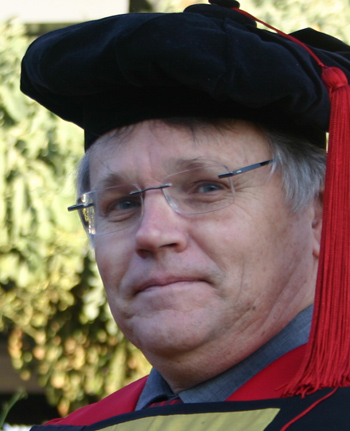Latest News Archive
Please select Category, Year, and then Month to display items
10 March 2022
|
Story Anthony Mthembu
|
Photo Unsplash
 The No Student Hungry team gearing up to start distributing food parcels to the selected students.
The No Student Hungry team gearing up to start distributing food parcels to the selected students.
The UFS is one of the many institutions of higher learning where food insecurity is an active issue. However, the
No Student Hungry Programme is one of the initiatives launched at the university to assist in fighting food insecurity at the institution.
The purpose of the programme
Since its inception in 2011, the initiative has assisted many students in acquiring a healthy meal. Additionally, the Food Environment Office also hands out food packages, so that students can continue to achieve academically. “We are trying to develop a healthy environment for students and make it easier for them to have a nice and healthy meal,” stated Annelize Visagie, who heads the Food Environment Office at the UFS. The Food Environment programme is spread out on all three campuses, each with its own facilitators. Furthermore, the programme mainly caters for students who are not funded by the National Student Financial Aid Scheme (NSFAS) but who are excelling academically. The abovementioned students apply for assistance online, and a list is then drawn up of students who receive assistance for the year.
Alternative solutions to keep the initiative running
On the Bloemfontein Campus, the No Student Hungry Programme will be catering for 200 students in the 2022 academic year, assisting them with a daily nutritious meal. Additional food parcels are also handed out to provide further assistance. “We give food parcels to the students on the list every Tuesday and Thursday at the Thakaneng Bridge,” Visagie highlighted. However, she argues that catering for the student population through this programme can be a challenge, as the demand for assistance is growing rapidly and the ability to assist is limited. The programme relies on partnerships and sponsors to assist the student body. In fact, the coordinators of the programme currently have a memorandum of understanding with Tiger Brands according to which they deliver around 100 food parcels for distribution.
In addition, the coordinators have put in place alternative measures to ensure that they can provide more food to students. “The
Kovsie Act Office, in partnership with the
Department of Sustainable Food Systems and Development, has started a food garden where healthy and nutritious produce are grown, in order to add value to the distribution,” she indicated. Although the programme can only assist to a point, students who are in desperate need of assistance are never turned away. In fact, the
Social Support Unit at Thakaneng Bridge usually assists students with food vouchers for a maximum of four days.
A commitment to teaching healthy eating habits
The programme is not only committed to curbing food insecurity, but also to ensuring that students have a healthy and balanced diet. As such, a booklet is being issued by the
Department of Nutrition and Dietetics in collaboration with the Department of Sustainable Food Systems and Development, which contains ways in which students can make a healthy meal using some of the ingredients offered in the food parcels.
“We want to teach students how to eat healthy in the cheapest way, because they don’t have a lot of money to buy expensive food products,” Visagie argued.
Prof Britz heading to Yale
2013-04-22
|
 |
Prof Dolf Britz
Photo: Supplied
22 April 2013 |
Prof Dolf Britz has been awarded the honour of an appointment at Yale Divinity School (YDS) at Yale University in New Haven, Connecticut, in the United States. Starting in August 2013, Prof Britz will be involved in research initiatives and the teaching of post-graduate seminars at the university, which was founded in 1701.
The appointment is the natural progression of a collaboration agreement between the University of the Free State (UFS) and Yale University which dates back to 2009 with the formation of the Jonathan Edwards Centre Africa. The strategic partnership focuses on increasing African access to quality education and is geared towards empowering new-generation African leaders in academic and faith-based organisations with primary scholarly resources, research, education and publication.
Prof Britz’s appointment is equally exciting to the respective faculties involved at the UFS and Yale.
“We are most grateful that the generous support by the University of the Free States makes it possible for Prof Britz to be with us in this capacity,” said Prof Carolyn Sharp, Interim Associate Dean of Academic Affairs at YDS.
Prof Adriaan Neele, the Director of the Jonathan Edwards Center at Yale and extraordinary professor at the UFS, thinks Prof Britz’s appointment can be just as beneficial to YDS students.
“Prof Britz’s keen insight in historical primary sources will be very beneficial to Yale’s students and the faculty. His appointment demonstrates the strategic nature of the academic relationship between the UFS and Yale,” he said.